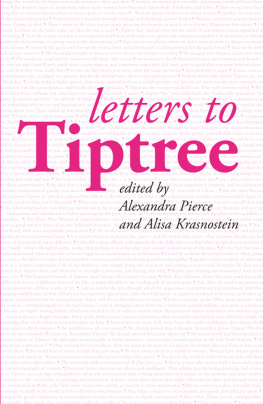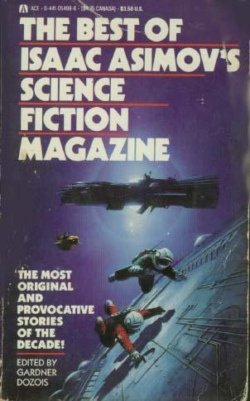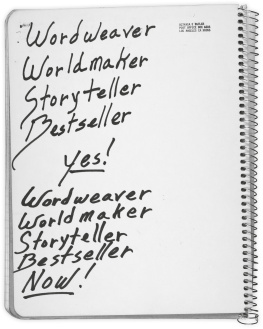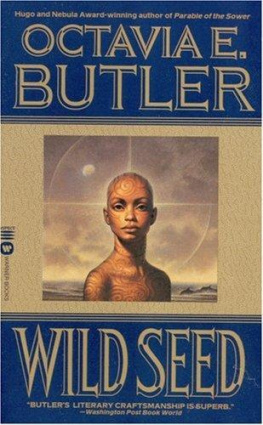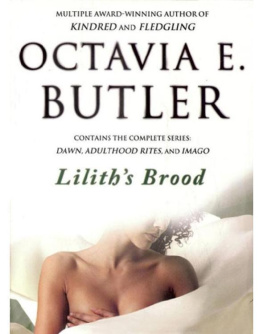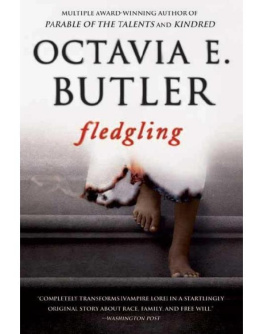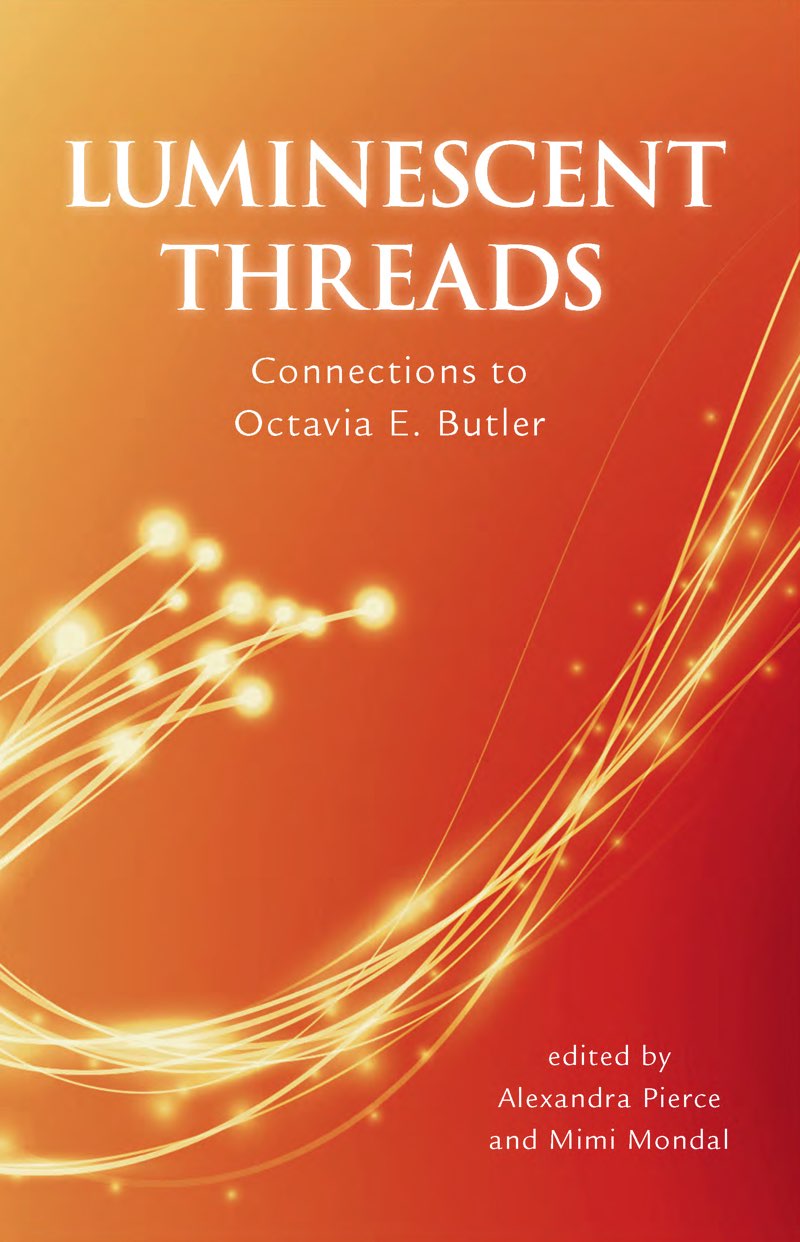Alexandra Pierce
I read two of the three books of the Xenogenesis trilogy (Dawn and Adulthood Rites) many years before I had any idea who Octavia Estelle Butler was; Im not sure whether I was reading while she was still alive, or not. I didnt know that she was African American. I certainly didnt know how important she was to so many people. Since then, I have become much more aware of both feminist science fiction and the importance of diversity in all fiction. In both of these arenas, Octavia Butlers name crops up.
In 2015, I coedited Letters to Tiptree in honour of James Tiptree Jr/Alice Sheldon. In the year of her centenary, we deemed it important to recognise this woman who wrote under a mans name, who seemed to be going unrecognised in the wider science fiction community but who had had such a significant impact on that community through her fiction and her life. The response was wonderful, with many people writing letters about how important she was as an author, and as a person. It also struck a chord with readers, and we started wondering which other writers ought to be paid tribute to in a similar way. Octavia Butler seemed obvious; not because she is in danger of being forgotten, but because she was remarkable in so many ways.
Octavia Butler was a pioneerthe first African American woman to make a living from science fiction writing. She wrote powerful, difficult, provocative and beautiful fiction. She had a personal impact on innumerable people by attending conventions, speaking at universities, and tutoring at writing workshops. As we had hoped, the responses we have had for the book in your hands have been humbling. They are personal, and political, and poetic; they are fierce and full of love. A lot like Butlers work itself.
This book collects some of the ways people relate and connect to Butler, with each sections title a quote from a letter or essay within it. The first section, Your work is a river I come home to, focuses on how Butler has inspired people: in their work, in their lives. In the second, which uses a line from Butlers own essay Positive Obsessions, authors reflect on systemic and current political issues that Butler either commented on or would have, were she still alive. Love lingers in between dog-eared pages includes letters and essays mainly interested in Butlers fictionfrom Kindred to Xenogenesis to Fledglingwith reactions, arguments, and reflections on her work. Next, in I am an Octavia E. Butler Scholar, are letters from some of the Octavia E. Butler Scholars: Clarion and Clarion West students who received the Octavia E. Butler Memorial Scholarship, set up by the Carl Brandon Society in Butlers honour after her death. The following chapter fits neatly after the Clarion one: Forget talent. There is only the work. It features writers reflecting on how Butler influenced their writing through tutoring at Clarion or otherwise. The subsequent section, I love you across oceans, across generations, across lives includes, broadly speaking, love letters. They recount ways in which Butler and her work changed something about the writers in situations as individual as the people describing them. The book is rounded out with a memorial that appeared in Science Fiction Studies in 2010, highlighting Butlers many contributions to science fiction as well as examining how Butler has been studied. And we end with Octavia Butlers own words, in an interview with Stephen W. Potts from 1996. It was important to us we allow Butler to speak for herself.
In 2008, Ritch Calvin noted that by that stage, a veritable cottage industry seem[ed] to have grown up around [Butlers] work. He compiled a bibliography to showcase both Butlers own work, and how much had been written by other people about her. His piece for Utopian Studies in their Octavia Butler Special Issue (Volume 19, Number 3) ran from page 493 to page 516 of that journal, and covered (lengthy) reviews, dissertations and theses, books and chapters of books, and journal or magazine articles. A search in JSTOR (a digital library that enables researchers to search through academic journals) for Octavia Butler limited to 2009-2017, to catch the work not covered by Calvin, returns 103 hits. Not all of them are especially relevant to Butler herself: some are reviews of books about Butler, which is getting a bit meta, and some have only a passing mention of Butler in relation to others. Nonetheless, this is testament to her enduring importanceas a writer and as a person. Luminescent Threads: Connections to Octavia Butler is a testament to that as well. Included are many moving, personal accounts of how Octavia Butler as a person, or through her fiction, influenced people in different places and times and ways.
After reading Xenogenesis, and especially when I learned more about Butler as a person, I always meant to go to more of her work but other books kept getting in the way. If you dont prioritise, its easy for that to happen. In working on this book, I have now read some of Butlers short work, and all but two of Butlers novels. I cant find Survivor, the book that Butler refused to allow to be reprinted; I hold out hope that one day, in a little country town second-hand bookshop or op-shop, Ill find it on the shelf for five dollars. And I also havent read Kindred. Because I am scared to. Because I know it will be a harrowing experience. And I know that these are weak excuses. I will get around to reading it one day.
In reading Luminescent Threads: Connections to Octavia Butler, I hope that you will be encouraged, and inspired. Encouraged to persist in writing, or whatever work you do; encouraged to keep railing against oppression and know that you are not alone. Inspired to read more work by Octavia Butler, or to re-read it, or read work by those featured here. And I hope you will be encouraged and inspired to share all of this with those around you.
A lexandra Pierce
Melbourne
Senior Editor


